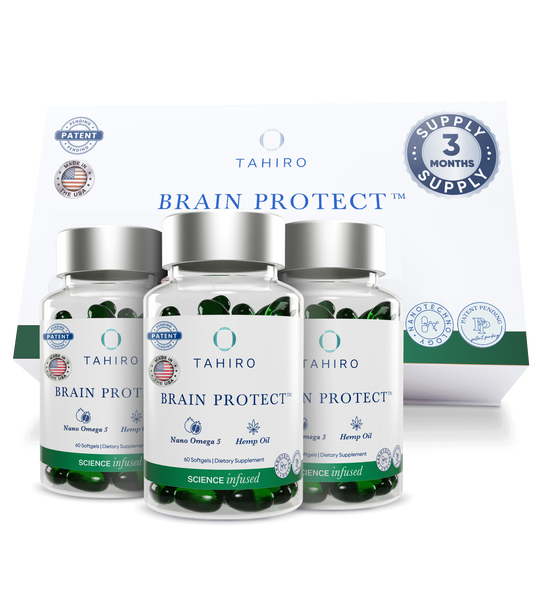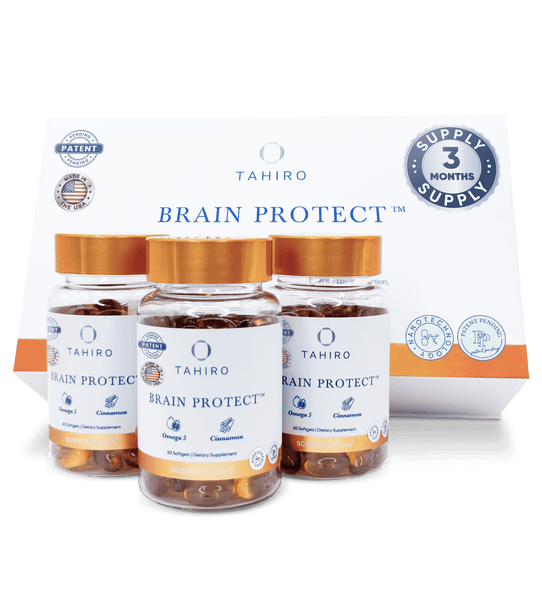Dementia is a decline in cognitive function, which is currently on the rise. The two most common types are Alzheimer’s and vascular dementia. Dealing with dementia can be exhausting and troubling for both the family and the person with this condition. Additionally, it can be very costly.
But, what is the actual cost of dementia in the United States? And how does it compare to other countries?
Here, we’ll explore the cost of dementia in the United States and ways to help prevent it through lifestyle choices and supplementation.
What Is Dementia?
Dementia is not a single disease. In fact, it is a term to describe a collection of symptoms people experience when there are abnormal brain changes. These changes in the brain can cause a decline in cognitive abilities and affect everyday activities.
The most common form of Dementia is Alzheimer’s (60-80% (1)), followed by vascular dementia. There are other forms of dementia, such as Parkinson’s and frontotemporal dementia.
There are two main forms of dementia treatment: medication and environmental changes (modifying the environment and occupational therapy). The combination of these treatments can help bring some sense of normal life to the person with dementia.
How Many People In The US Have Dementia
According to the World Health Organization (WHO), over 55 million people (2) have dementia. And, in the US, the statistics are equally alarming. It’s estimated that 6.7 million people in the US have dementia. But, what is more alarming is that it is projected that by 2050, 12.7 million people will have Alzheimer’s (just one of the forms of dementia). That is why more and more research is destined to find ways to help prevent and treat dementia. Another reason is the cost it has on the health care system.
What Is The Cost of Dementia?
Evidence shows that the cost of dementia is very high. Worldwide, in 2019, the estimated cost for the 55.2 million people with dementia was $1313.4 billion (3). This means that it took $23,796 per person to treat dementia.
Of the total, 16% were directed to medical costs, 34% to social sector costs (such as long-term care), and 50% to informal care.
In the US, things are not that different.
In 2023, the cost of dementia may reach $345 billion (4) without including unpaid caregiving. Regarding Medicare and Medicaid, they are expected to cover $222 billion, while $87 billion is expected to be paid out-of-pocket.
The total cost of care for a person with dementia is estimated at more than $390,000. And, it is estimated that the overall cost of dementia may increase by more than $1 trillion by 2050.
Factors That Affect The Cost of Care
The cost of dementia per person may be affected by several factors. Here are some of the factors that affect if the cost may be cheaper or more expensive.
- The state you live in
- Population density (rural vs. urban)
- Local laws
- Agency vs. independent care
- Seasonality
- Demand
- Activities you need help with
- Tax credits and deductions
Lifestyle Habits To Prevent Or Reduce Dementia
As you can see, the cost of dementia can be costly to both the country and the families. There are ways to help prevent dementia as you get older. Exercise, nutrition, and challenging the mind are all ways to help you prevent dementia.
-
Exercise: Leading an active life not only helps keep a healthy cardiovascular system but it can also reduce the risk of dementia. Strive for 150 minutes of light to moderate activity, and ask a health professional to determine your best type of movement.
-
Don’t smoke. Smoking can affect the brain’s blood vessels, increasing the risk of dementia.
-
Drink less alcohol. Drinking high levels of alcohol can affect the brain. So, while you don’t need to eliminate it, ensure you drink in moderation.
-
Stay mentally active. Engaging in mental or social activities can help your brain cope with disease. It can also help reduce stress and keep you sharp.
-
Eat healthy. Eating a varied diet with whole grains, lean protein, healthy fats, fruits, and vegetables can provide the essential nutrients you need to keep the body (and brain) healthy. Ensure you are getting a diet high in antioxidants since they can help reduce the damage of free radicals and promote good brain function.
Nano Omega-5: A Promising Approach To Slowing Down or Preventing Dementia
While nutrition, exercise, and other lifestyle habits are good, sometimes you may need additional help to keep a healthy brain. In this case, nutritional supplements can be the best aid to help decrease the risk of age-related mental decline. Brain Protect™ offers two options: Nano Omega-5 Hemp Oil and Nano Omega-5 Cinnamon. The key ingredient in both is Omega-5, one of nature’s most potent antioxidants, crucial in reducing oxidative stress. Additionally, Hemp and Cinnamon are both neuroprotective ingredients with well-established benefits.What sets Brain Protect™ apart is its cutting-edge nanotechnology formulation. Thanks to its technology, it bypasses the digestive tract, enhancing the bioavailability of its powerful ingredients. In addition, it converts its molecules into tiny droplets capable of crossing the blood-brain barrier while maintaining the integrity of the original molecule structure. As a result, Brain Protect™ delivers these essential components to all body organs, including the brain.Brain Protect™ has undergone rigorous in vivo and in vitro testing, demonstrating its remarkable ability to enhance cognitive function and potentially slow cognitive decline. Notably, results can be observed as early as 30 days after consistent use. However, the most optimal results are typically experienced between 60 to 90 days of consistent use. During this time, the body's cells reach saturation, maximizing the benefits.








